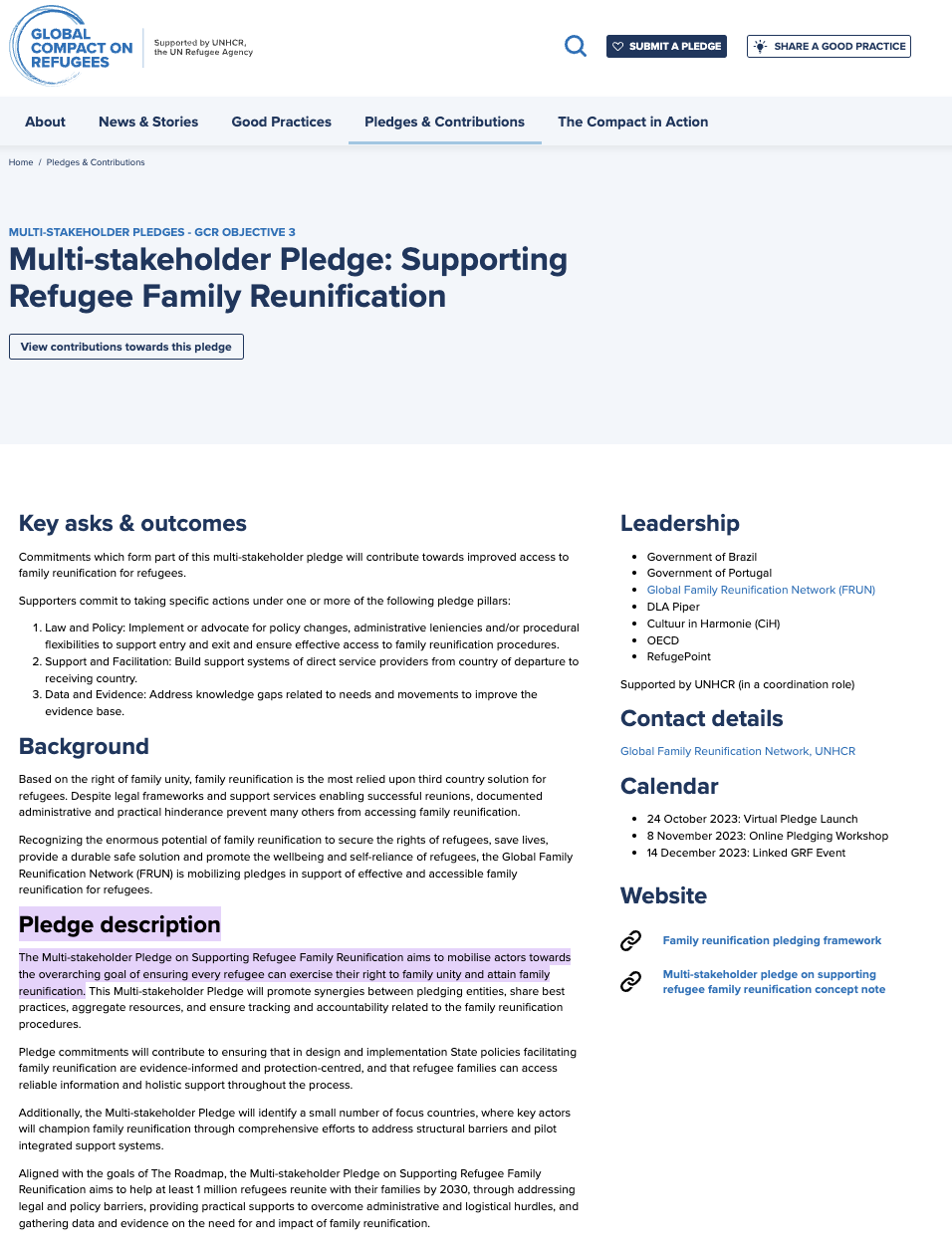
Multi-Stakeholder Pledge: Supporting Refugee Family Reunification
Author(s)
Abstract
Background
Based on the right of family unity, family reunification is the most relied upon third country solution for refugees. Despite legal frameworks and support services enabling successful reunions, documented administrative and practical hinderance prevent many others from accessing family reunification.
Recognizing the enormous potential of family reunification to secure the rights of refugees, save lives, provide a durable safe solution and promote the wellbeing and self-reliance of refugees, the Global Family Reunification Network (FRUN) is mobilizing pledges in support of effective and accessible family reunification for refugees.
Pledge description
The Multi-stakeholder Pledge on Supporting Refugee Family Reunification aims to mobilise actors towards the overarching goal of ensuring every refugee can exercise their right to family unity and attain family reunification. This Multi-stakeholder Pledge will promote synergies between pledging entities, share best practices, aggregate resources, and ensure tracking and accountability related to the family reunification procedures.
Pledge commitments will contribute to ensuring that in design and implementation State policies facilitating family reunification are evidence-informed and protection-centred, and that refugee families can access reliable information and holistic support throughout the process.
Additionally, the Multi-stakeholder Pledge will identify a small number of focus countries, where key actors will champion family reunification through comprehensive efforts to address structural barriers and pilot integrated support systems.
Aligned with the goals of The Roadmap, the Multi-stakeholder Pledge on Supporting Refugee Family Reunification aims to help at least 1 million refugees reunite with their families by 2030, through addressing legal and policy barriers, providing practical supports to overcome administrative and logistical hurdles, and gathering data and evidence on the need for and impact of family reunification.
